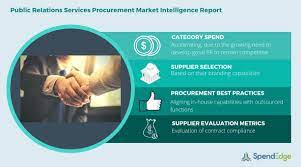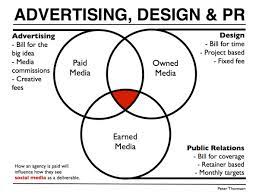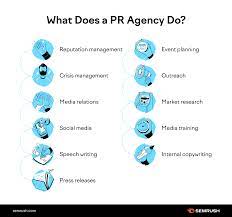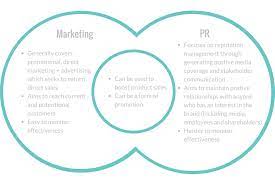Building Trust and Reputation: Public Relations Services that Drive Success
Public Relations Services: Building Strong Relationships and Positive Reputations
In today’s fast-paced and interconnected world, effective communication is crucial for businesses to thrive. Public relations (PR) services play a vital role in shaping and managing the public perception of companies, organizations, and individuals. By strategically crafting messages and engaging with key stakeholders, PR professionals help build strong relationships and foster positive reputations.
One of the primary goals of PR services is to establish a favorable image for clients. This involves creating compelling narratives that resonate with target audiences, highlighting their unique strengths, values, and contributions. Skilled PR practitioners use various tools and channels to disseminate these messages, including media relations, social media management, content creation, events management, and more.
Media relations form a cornerstone of PR services. PR professionals act as intermediaries between clients and journalists, working to secure positive media coverage in relevant outlets. By building relationships with reporters and editors, they pitch stories that showcase the client’s expertise or highlight their achievements. This earned media helps raise awareness, enhance credibility, and shape public opinion.
In the digital age, social media has become an essential platform for effective PR campaigns. Skilled PR practitioners leverage social media channels to engage directly with target audiences in real-time. They create engaging content that sparks conversations around their clients’ brands or issues related to their industry. By monitoring online conversations and responding promptly to feedback or concerns, they maintain a positive online presence.
Content creation is another key aspect of PR services. Well-crafted press releases, articles, blog posts, whitepapers, or thought leadership pieces can position clients as industry experts while providing valuable information to target audiences. These materials can be distributed through various channels such as websites, newsletters or shared on social media platforms to maximize reach.
Events management is yet another valuable service provided by PR professionals. From organizing press conferences to coordinating product launches or corporate events, they ensure that every detail is meticulously planned and executed. Events offer unique opportunities to engage with key stakeholders, including media representatives, industry experts, and potential customers. PR professionals leverage these occasions to generate positive publicity and create lasting impressions.
Crisis management is an integral part of PR services. In times of crisis or reputation-threatening situations, PR professionals step in to mitigate damage and protect the client’s reputation. They develop strategic communication plans, provide guidance on handling media inquiries, and ensure transparency throughout the process. By effectively managing crises, they help clients maintain trust and credibility even during challenging times.
Ultimately, effective PR services are about building long-term relationships based on trust, credibility, and transparency. Skilled PR practitioners act as trusted advisors, working closely with clients to understand their goals, values, and target audiences. They develop tailored strategies that align with the client’s objectives while adapting to the ever-evolving communication landscape.
In conclusion, public relations services are essential for businesses seeking to establish positive reputations and build strong relationships with key stakeholders. Through strategic messaging, media relations, social media management, content creation, events management, and crisis communication support; PR professionals help shape public perception while driving business growth. By partnering with skilled PR practitioners who understand their industry landscape and target audience preferences; businesses can navigate the complex world of communication with confidence and achieve long-term success.
6 Essential Tips for Effective Public Relations Services in the UK
- Develop a clear and consistent message
- Build relationships
- Utilise digital tools
- Monitor performance
- Measure success
- Be proactive
Develop a clear and consistent message
Develop a Clear and Consistent Message: Key to Effective Public Relations Services
In the realm of public relations (PR) services, one of the most fundamental tips for success is to develop a clear and consistent message. Crafting a message that effectively communicates your brand’s values, strengths, and unique selling points is crucial for building a positive reputation and establishing strong relationships with your target audience.
A clear message serves as the foundation of your PR efforts. It encapsulates what you want to convey to the public, whether it’s about your company, product, or cause. By distilling your key messages into concise and compelling statements, you ensure that your communication is focused and impactful.
Consistency is equally important. When your message remains consistent across different channels and platforms, it reinforces your brand identity and builds trust among stakeholders. Whether it’s in media interviews, press releases, social media posts, or any other communication material, maintaining consistency in tone, language, and core messaging helps create a cohesive brand image.
To develop a clear and consistent message for your PR campaigns:
- Define Your Objectives: Start by identifying what you want to achieve through your PR efforts. Are you looking to raise awareness about a new product? Enhance thought leadership in your industry? Or manage a crisis situation? Clearly defining your goals will guide the development of your messaging strategy.
- Know Your Target Audience: Understand who you are trying to reach with your message. Conduct research to gain insights into their preferences, needs, and values. This knowledge will help you tailor your messaging to resonate with them effectively.
- Craft Key Messages: Identify the core messages that align with your objectives and resonate with your target audience. These should be concise statements that encapsulate what makes your brand unique or why people should care about what you have to say.
- Be Authentic: Authenticity is key in building trust with stakeholders. Ensure that your messaging reflects the true essence of your brand and aligns with your actions. Avoid using jargon or exaggerated claims that may undermine your credibility.
- Adapt to Different Channels: While consistency is important, it’s essential to adapt your message to suit different communication channels. Tailor the tone and format of your message to fit the platform you’re using, whether it’s a press release, social media post, or an interview.
- Train Spokespeople: If you have designated spokespersons representing your brand, provide them with media training to ensure they deliver consistent messaging and maintain a unified voice when engaging with the public.
- Monitor and Adjust: Regularly monitor feedback and results from your PR efforts. This will help you gauge the effectiveness of your messaging and make necessary adjustments if needed.
Developing a clear and consistent message is a fundamental aspect of effective PR services. It lays the groundwork for successful communication campaigns, helps build trust with stakeholders, and strengthens your brand’s reputation over time. By investing time and effort into crafting an impactful message, you set yourself up for PR success in today’s competitive landscape.
Build relationships
Building Relationships: The Key to Successful Public Relations Services
In the realm of public relations services, one principle stands out as crucial: building relationships. At its core, PR is about fostering connections and cultivating positive interactions with key stakeholders. Whether it’s with the media, customers, industry influencers, or the general public, building strong relationships is the foundation for successful PR campaigns.
Why is building relationships so important in PR? Firstly, relationships with the media are essential. Journalists and reporters are gatekeepers to valuable media coverage. By establishing trust and credibility with them, PR professionals can increase the chances of securing positive press for their clients. Building relationships with media personnel involves understanding their beat, providing relevant and newsworthy content, and being responsive to their inquiries.
Secondly, nurturing relationships with customers is vital for any business. PR services play a crucial role in shaping a positive customer experience by effectively communicating a brand’s values and offerings. By engaging with customers through various channels such as social media or events, PR professionals can build loyalty and advocacy. Strong customer relationships lead to increased brand trust and long-term success.
Furthermore, developing relationships with industry influencers can significantly impact a brand’s reputation and reach. These influencers have established credibility within specific niches or communities. By collaborating with them or seeking their endorsement, PR professionals can tap into an influencer’s network and amplify their client’s message.
Lastly, building relationships within the broader community is essential for effective PR services. This includes engaging with local organizations or community groups that align with a client’s values or interests. By actively participating in community initiatives or supporting charitable causes, businesses can demonstrate their commitment to social responsibility while building goodwill among stakeholders.
So how does one go about building these crucial relationships in PR? It starts with authentic communication. Openness, transparency, and honesty are fundamental when interacting with stakeholders. Establishing clear lines of communication builds trust over time.
Additionally, personalization is key. Tailor messages and interactions to the specific needs and preferences of each stakeholder group. This shows that you value their individuality and understand their interests.
Consistency is also crucial in relationship-building. Regularly engage with stakeholders through various channels, such as social media, newsletters, or events. By maintaining a consistent presence, PR professionals can foster ongoing connections and keep stakeholders informed.
Lastly, it’s essential to listen actively. Understanding the needs, concerns, and feedback of stakeholders allows PR professionals to address them effectively. By actively listening and responding thoughtfully, relationships can be strengthened and trust can be built.
In conclusion, building relationships is the cornerstone of successful public relations services. By nurturing connections with the media, customers, influencers, and the broader community; PR professionals can amplify their client’s message and enhance their reputation. Through authentic communication, personalization, consistency, and active listening; strong relationships can be cultivated that lead to long-term success in the dynamic world of PR.
Utilise digital tools
Utilise Digital Tools: Maximising the Power of Public Relations Services
In today’s digital age, the landscape of public relations (PR) has evolved significantly. With the advent of various digital tools and platforms, PR professionals now have a wealth of resources at their disposal to enhance their strategies and achieve even greater results for their clients.
Digital tools offer numerous advantages in the realm of PR services. Firstly, they provide an efficient way to reach a wider audience. Social media platforms, for example, allow PR professionals to engage directly with target audiences and disseminate key messages with just a few clicks. This immediate access enables real-time communication and facilitates instant feedback and interaction.
Another benefit of digital tools is their ability to track and measure the impact of PR efforts. Through analytics and data-driven insights, PR professionals can assess the reach, engagement, and sentiment surrounding their campaigns. This information helps them refine their strategies, identify areas for improvement, and demonstrate the value they bring to clients.
Digital tools also enable PR professionals to monitor online conversations about their clients or industry trends. By staying on top of relevant discussions across social media platforms, forums, blogs, or news websites; they can identify opportunities for proactive engagement or address any potential issues promptly. This proactive approach allows them to shape public perception effectively.
Content creation is another area where digital tools excel. With user-friendly design software or online platforms available, PR professionals can easily create visually appealing content such as infographics or videos that capture attention and convey key messages effectively. They can also leverage content management systems (CMS) to streamline the distribution process across multiple channels.
Furthermore, digital tools provide valuable opportunities for media relations. Online press release distribution services enable PR professionals to reach a vast network of journalists quickly. They can also utilize media databases or journalist contact management platforms to build relationships with reporters covering relevant beats or industries. These tools facilitate seamless communication between PR professionals and media representatives.
Digital tools are particularly useful for crisis management. In times of crisis or reputation-threatening situations, PR professionals can leverage social media monitoring tools to identify and address negative sentiment promptly. They can also utilize online collaboration platforms to coordinate crisis response efforts across teams, ensuring a cohesive and timely approach.
In summary, the effective use of digital tools has become integral to modern PR services. From engaging with target audiences on social media platforms to tracking campaign performance, monitoring online conversations, creating compelling content, optimizing media relations, and managing crises; these tools enhance the capabilities of PR professionals in numerous ways. By embracing digital resources and staying up-to-date with emerging trends in the digital realm; PR professionals can maximize their impact and deliver exceptional results for their clients in today’s fast-paced and interconnected world.
Monitor performance
Monitoring Performance: The Key to Effective Public Relations Services
In the dynamic world of public relations (PR) services, staying on top of performance is essential. Monitoring performance allows PR professionals to gauge the effectiveness of their strategies, make data-driven decisions, and ensure that their efforts are delivering the desired results. It is a crucial aspect of PR services that helps businesses stay ahead in today’s competitive landscape.
Monitoring performance involves tracking key metrics and indicators to evaluate the impact of PR efforts. These metrics can vary depending on the specific goals and objectives of a PR campaign. For example, if the goal is to increase brand awareness, metrics such as media mentions, social media engagement, website traffic, or search engine rankings can provide valuable insights.
By regularly monitoring these metrics, PR professionals can identify trends and patterns that indicate success or areas for improvement. They can assess which strategies are working well and which may need adjustment. This data-driven approach allows for informed decision-making and helps optimize future PR activities.
One important aspect of monitoring performance is setting measurable goals at the outset of a PR campaign. Clear objectives provide a benchmark against which progress can be measured. Whether it’s increasing media coverage, improving brand sentiment, or driving website conversions, having specific goals enables PR professionals to track progress effectively.
In addition to quantitative metrics, qualitative feedback should also be considered. Monitoring sentiment analysis through social listening tools or conducting surveys and interviews can provide valuable insights into how target audiences perceive a brand or message. Understanding audience sentiment allows for adjustments in messaging or strategy to better resonate with the intended audience.
Regular reporting is another crucial element in monitoring performance. By providing clients with comprehensive reports on key metrics and outcomes achieved during a specified period, PR professionals demonstrate transparency and accountability. These reports help clients understand the value they are receiving from their investment in PR services and allow for meaningful discussions on progress and future plans.
Moreover, monitoring performance enables agility in adapting strategies as needed. In a rapidly changing environment, PR professionals must be able to pivot and adjust their approach to stay relevant. By closely monitoring performance, they can identify emerging trends or shifts in audience preferences and respond accordingly.
Overall, monitoring performance is a fundamental aspect of effective PR services. It allows PR professionals to assess the impact of their efforts, make data-driven decisions, and optimize strategies for better results. By setting measurable goals, tracking key metrics, considering qualitative feedback, and providing regular reports, PR professionals can demonstrate their value and help businesses achieve their communication objectives.
In the ever-evolving landscape of public relations, monitoring performance is the compass that guides strategic decision-making. By staying vigilant and adaptable in tracking progress and making necessary adjustments along the way, businesses can ensure that their PR efforts are driving success and helping them build strong relationships with key stakeholders.
Measure success
One essential tip for effective public relations (PR) services is to measure success. In today’s data-driven world, it is crucial to have a clear understanding of the impact and value that PR efforts bring to a business or organization.
Measuring success in PR involves setting specific goals and objectives from the outset. These goals can vary depending on the desired outcomes, such as increasing brand awareness, improving reputation, generating media coverage, or driving website traffic. By defining these objectives, PR professionals can establish benchmarks against which they can evaluate their efforts.
To measure success in PR, it is important to use relevant metrics and key performance indicators (KPIs) that align with the established goals. For instance, if the goal is to increase media coverage, metrics such as the number of press mentions or share of voice in media outlets can be tracked. If the objective is to enhance brand reputation, metrics like sentiment analysis or customer feedback surveys can provide valuable insights.
In addition to quantitative metrics, qualitative assessments are also valuable in measuring success. This involves evaluating the quality and tone of media coverage or analyzing customer perceptions through focus groups or interviews. These qualitative insights provide a deeper understanding of how PR efforts are influencing public opinion and brand perception.
Regular monitoring and analysis are essential components of measuring success in PR. By using tools like media monitoring software or social media analytics platforms, PR professionals can track mentions of their clients or brands across various channels. This allows them to identify trends, measure sentiment, and gain a comprehensive view of how their messages are resonating with target audiences.
It is important to note that measuring success in PR should go beyond just tracking outputs such as media mentions or social media followers. It should also focus on outcomes that directly impact business objectives. For example, if a PR campaign aims to drive website traffic and increase conversions, tracking website analytics data such as referral traffic sources or conversion rates becomes crucial.
By regularly reviewing and analyzing these metrics, PR professionals can gain valuable insights into the effectiveness of their strategies and tactics. This data-driven approach allows them to make informed decisions, optimize campaigns, and demonstrate the value of PR efforts to stakeholders.
In conclusion, measuring success is an essential tip for effective PR services. By setting clear goals, utilizing relevant metrics and KPIs, monitoring media coverage and sentiment, and regularly analyzing data, PR professionals can gain a comprehensive understanding of the impact their efforts have on business objectives. With this information, they can continuously improve strategies and demonstrate the value of PR in achieving tangible results for their clients or organizations.
Be proactive
Public Relations Services Tip: Be Proactive
In the dynamic world of public relations, being proactive is key to achieving success. Rather than merely reacting to situations as they arise, proactive PR services involve anticipating potential challenges and opportunities and taking strategic action to shape the narrative in a positive direction.
Being proactive means staying ahead of the curve and actively seeking out opportunities to showcase your brand or address any potential issues before they escalate. Here are a few reasons why being proactive in your PR efforts can make a significant impact:
- Building Relationships: By taking the initiative, you can establish strong relationships with key stakeholders such as journalists, influencers, and industry experts. Proactively reaching out to them with relevant information or insights can help position your brand as a trusted source and increase your chances of securing positive media coverage or partnerships.
- Reputation Management: Being proactive allows you to actively manage your brand’s reputation. By monitoring online conversations and social media platforms, you can address any negative comments or concerns promptly. Taking quick action demonstrates that you value customer feedback and are committed to resolving issues, which helps maintain a positive image.
- Thought Leadership: Proactive PR services enable you to position yourself as a thought leader in your industry. By identifying emerging trends or topics of interest, you can create valuable content that showcases your expertise and insights. Sharing this content through various channels allows you to engage with your target audience and establish yourself as an authority in your field.
- Crisis Preparedness: Being proactive also involves preparing for potential crises before they occur. This includes developing crisis communication plans, conducting risk assessments, and training key personnel on how to handle challenging situations effectively. By having these measures in place, you can respond swiftly and confidently during times of crisis while minimizing reputational damage.
- Maximizing Opportunities: Proactive PR services help identify opportunities for brand exposure that might otherwise be missed. Whether it’s participating in industry events, leveraging timely news stories, or capitalizing on social media trends, being proactive allows you to position your brand in front of a wider audience and generate positive publicity.
In summary, being proactive in your PR efforts is essential for achieving success. By anticipating challenges, building relationships, managing your reputation, establishing thought leadership, preparing for crises, and maximizing opportunities; you can shape the narrative around your brand and maintain a positive image. Embrace a proactive approach to public relations services and unlock the full potential of your communication efforts.






